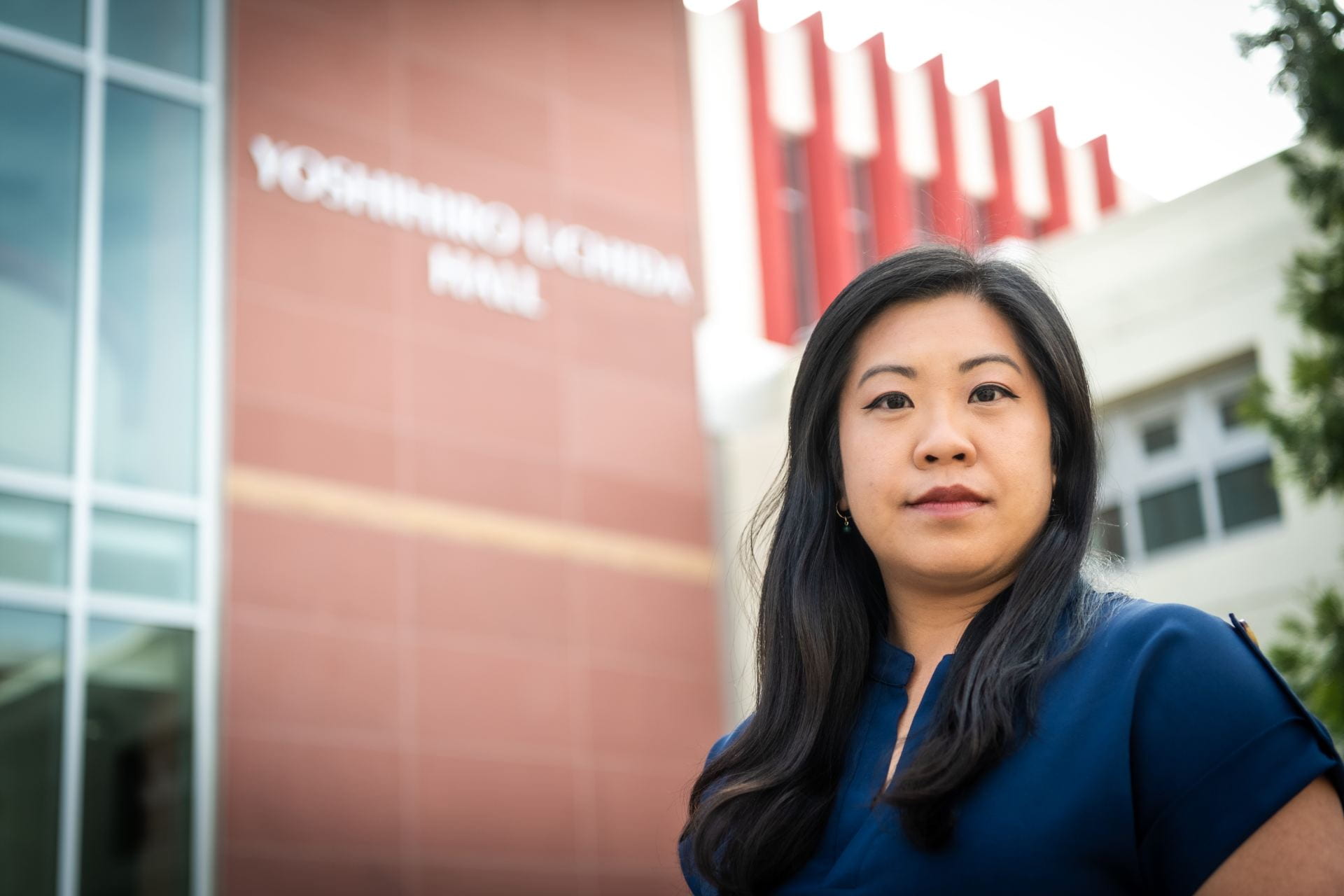Yvonne Kwan: Uplifting the Asian American Experience

A tireless advocate for grassroots activism and community building, Yvonne Kwan has played a key role in developing Asian American Studies at SJSU. Photo by Robert C. Bain.
History is important to San José State Assistant Professor of Asian American Studies Yvonne Kwan — not only learning facts and dates, but recognizing its long-lasting cultural impact. Her work as an academic, professor and community leader focuses on empowering underrepresented groups like Asian Americans to share their stories.
In spring 2022, Kwan received a $495,000 contract with Santa Clara County to document the oral histories of more than 30 Asian American activists across the region, including retired U.S. Congressman Mike Honda, ’68 Biological Sciences, ’70 Teaching Credential, ’72 MA Education; novelist Viet Than Nguyen, California Assemblymember Evan Low, ’03 Political Science; Mountain View City Councilmember Margaret Abe Koga and many others. Together with a Community Advisory Community and her research team, including research assistant, president and CEO of Associated Students, Inc. Nina Chuang, ’23 Nutrition and Food Science, they have documented the stories and experiences of many neighbors, alumni, activists and community leaders.
“We need to document our voices and our experiences because they’ve been so silenced,” she said. “There have been so many activists in Santa Clara, but if the documentation doesn’t exist, where does this history come from?”
In addition to her oral history project, she served as the inaugural director of SJSU’s Ethnic Studies Collaborative, where she led efforts to implement CA Assembly Bill 1460, the Ethnic Studies graduation requirement in the CSUs. She also led efforts to implement CA Assembly Bill 1460 (Ethnic Studies Graduation Requirement at the CSUs) at SJSU.
“I’m really proud that I grew up in a predominantly Latinx community, but I didn’t have a sense of belonging as an Asian American person,” said Kwan, who was born and raised in southern California.
“I’m a first-generation college student. My parents are immigrants. My father got as far as junior high; my mother to second grade. That narrative wasn’t so prominent in terms of understanding our journey as Asian Americans. It was through Asian American Studies that I was able to really ground myself.”
Creating community
Kwan’s vision for Asian American Studies is limitless. In 2021, she served as the lead organizer of the Southeast Asian American Studies Conference, which focused on Southeast Asians in the diaspora and the future of social justice. As an academic interested in the transgenerational transmission of trauma, especially in Cambodian families, Kwan has created many opportunities for fellow researchers and students alike.

Shirley Kuramoto, ’79 Creative Arts; shares an image of the barracks where she and her family were incarcerated during WWII at the Day of Remembrance event in February. Photo by Irene Adeline Milanez, ’25 Journalism.
In early 2023, Chuang and Kwan partnered with several Japantown organizations to host SJSU’s first annual Day of Remembrance in recognition of the 81st anniversary of Executive Order 9066. The event brought together notable alumni among the 120,000 people of Japanese descent incarcerated in camps during World War II and assembled a panel of current students and recent alumni invested in uplifting APIDA communities.
One common denominator threads through her research and teaching: The galvanizing power of community. Early in her SJSU career, she co-chaired the Asian Pacific Islander Desi American (APIDA) Task Force to help establish the Center for Asian Pacific Islander Student Empowerment (CAPISE), which opened in 2022. The need for community space felt even more urgent in 2020 when anti-Asian hate crimes were rampant throughout the country and across the Bay Area. For Kwan, establishing the CAPISE Center was non-negotiable in an era when students, faculty, staff and community members at large were vulnerable to attack.
Kwan is quick to add that the center also highlights tremendous opportunities for Spartans in the APIDA community. In addition to educating each other and the public about the legacy of Asian American activism, the center offers services, events and student-led programs that support Spartans from recruitment through graduation.
“Our job is to revitalize the sense of serving people working with the community,” Kwan said. “I don’t think we could do this work anywhere except San José State.”




